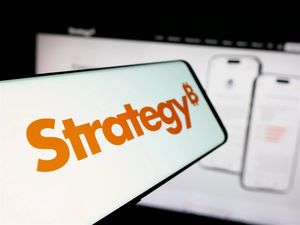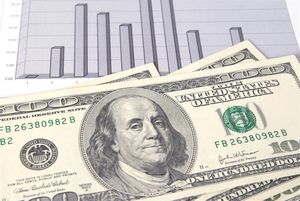Financial News
New study: 52% of Americans say 'cash is king'
(BPT) - As digital wallets and contactless payments become more popular, 52% of Americans say cash is king, and nearly a third carry it every day (27%), according to new Empower research.
Key takeaways
- 49% of Americans feel safer holding cash versus other investments.
- 42% of people say market uncertainty and the threat of a recession is the top reason for holding money in cash.
- Gen Z is the generation most likely to use cryptocurrency instead of cash (34%).
- 2 in 5 Americans say they never pay with a check.
- 41% of Gen Zers use digital payment platforms more often than cash, compared to 27% overall.
- Nearly a third of Americans (29%) are cashing in on using rewards program points every month as a form of payment.
Cash in the balance
According to more than half of Americans (52%), "cash is king" - a significant increase from the 17% who reported the same last year. Another 27% carry cash with them every day. This trend is particularly strong among older generations, with Baby Boomers (42%) and Gen Xers (31%) more likely than Millennials (23%) and Gen Zers (24%) to carry cash daily. Nearly a third of Americans (32%) generally keep at least $100 in cash on hand.
Half of Americans (49%) also feel safer holding cash versus other investments. Gen Xers (57%) are the most likely to feel this way, compared with 41% of Gen Zers. Market uncertainty and the threat of a recession are the top reasons people stash money in cash, as noted by 44% of Gen Xers, 42% of Millennials, and 39% of both Gen Zers and Baby Boomers.
About a third of Americans (31%) say cash will reign supreme indefinitely vs. other forms of payment, though not everyone has the same idea of what "cash" means. People define it in the following ways:
- Bills and coins (98%)
- Traditional savings accounts (24%)
- High-yield cash accounts (18%)
- Checks (13%)
- Money market accounts (13%)
Cashing in
In addition to market volatility or fear of a recession, nearly a third cited regional bank failures as a key motivator for keeping more cash on hand, while over a quarter noted cybersecurity concerns (26%).
According to Empower Personal Dashboard™ data as of July 2024, here are the average cash allocations for financial portfolios by decade:
Age | Cash Allocation | Median Cash Balance |
20s | 30.3% | $43,504 |
30s | 26.9% | $62,357 |
40s | 25.3% | $82,853 |
50s | 25.4% | $104,207 |
60s | 28.6% | $117,084 |
70s | 35.3% | $128,353 |
The median cash balance for users of the Empower Personal Dashboard™ as of July 2024 is $71,255, making up more than 27% of users' overall portfolio allocation. That's an increase of 15% in cash holdings over the same time period last year ($65,563 in 2023). While 48% of respondents prefer to invest in the stock market, 29% say they prefer to keep all their money in cash.
New money moves
Most generations are exploring other payment, savings and investment vehicles. Gen Z, in particular, stands out in its adoption of cryptocurrencies, with 34% using them (the highest among all age groups).
While traditional payment methods like debit and credit cards are the most common, digital payment platforms are gaining traction. Overall, 1 in 4 Americans (26%) say they are using digital payments weekly. The method is particularly popular among younger users: 41% of Gen Zers use digital payment platforms more often than cash, compared to 27% overall.
Nearly a third of Americans (29%) are cashing in on using rewards program points every month and a quarter swipe their credit card daily to pay for something (24%).
High-yield savings accounts, stocks, and bonds are top savings vehicles across all age groups. When selecting a savings account, Americans prioritize the following features:
- Low or no fees (72%)
- Interest rate (62%)
- Ease of online and mobile access (56%)
- Account security (52%)
Visit The Currency™ to read Empower's full research report, "Counting on cash."
Methodology: Empower commissioned a survey of 1,009 American adults on July 3, 2024.
RO3758173-0824
More News
View More





Quotes delayed at least 20 minutes.
By accessing this page, you agree to the following
Privacy Policy and Terms Of Service.



